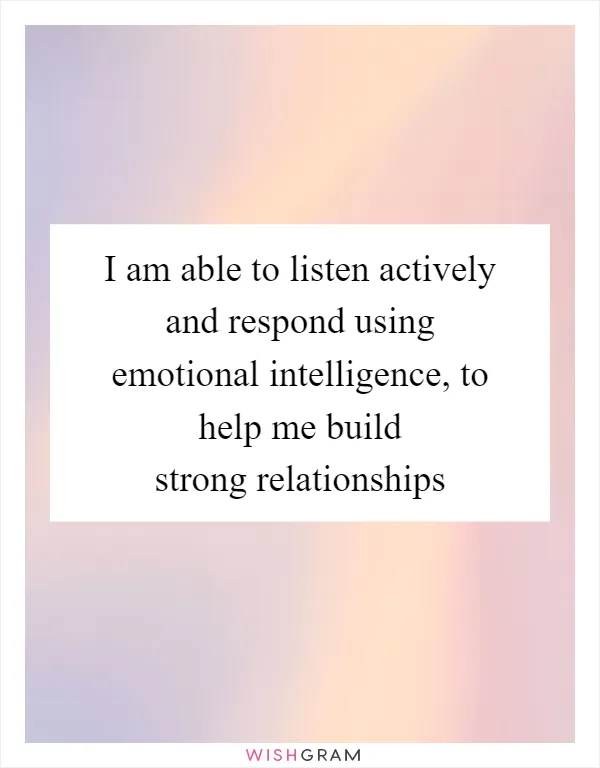I am able to listen actively and respond using emotional intelligence, to help me build strong relationships
The ability to listen actively and respond using emotional intelligence is a critical skill in building strong relationships, whether it's in personal or professional settings. Active listening means paying attention to what the other person is saying, both verbally and non-verbally, without interrupting or judging them. Emotional intelligence involves recognizing and managing your own emotions, as well as understanding and empathizing with the emotions of others.
When you actively listen and respond with emotional intelligence, you show the other person that you value and respect their thoughts and feelings. It also helps you to gain a deeper understanding of the person and their perspectives, which can foster trust and open communication. This skill is particularly important when it comes to building relationships with your children, as it can help them feel heard and understood, which in turn can strengthen the bond between you.
Listening actively and responding with emotional intelligence involves several key elements. The first is to be fully present in the conversation, which means avoiding distractions and focusing solely on the person and what they are saying. This can be challenging in today's fast-paced world, where we are often juggling multiple tasks and distractions, but making a conscious effort to be present can have a big impact on your ability to listen effectively.
Another important element is to use non-verbal cues to show that you are engaged in the conversation. This can include maintaining eye contact, nodding your head, and using facial expressions to convey empathy and understanding. It's also important to avoid interrupting or finishing the other person's sentences, which can be perceived as disrespectful and can shut down communication.
Responding with emotional intelligence involves being aware of your own emotions and using that awareness to guide your responses. This means recognizing when you may be feeling defensive or reactive and taking a step back to assess the situation before responding. It also involves showing empathy and understanding for the other person's perspective, even if you don't agree with it. This can help to de-escalate conflict and create a more positive, collaborative environment.
Practicing active listening and responding with emotional intelligence is a skill that can be developed over time. It requires a willingness to be present, to listen deeply, and to engage with others in a respectful and empathetic way. By focusing on building strong relationships through active listening and emotional intelligence, you can create a more positive and supportive environment for yourself and those around you.
